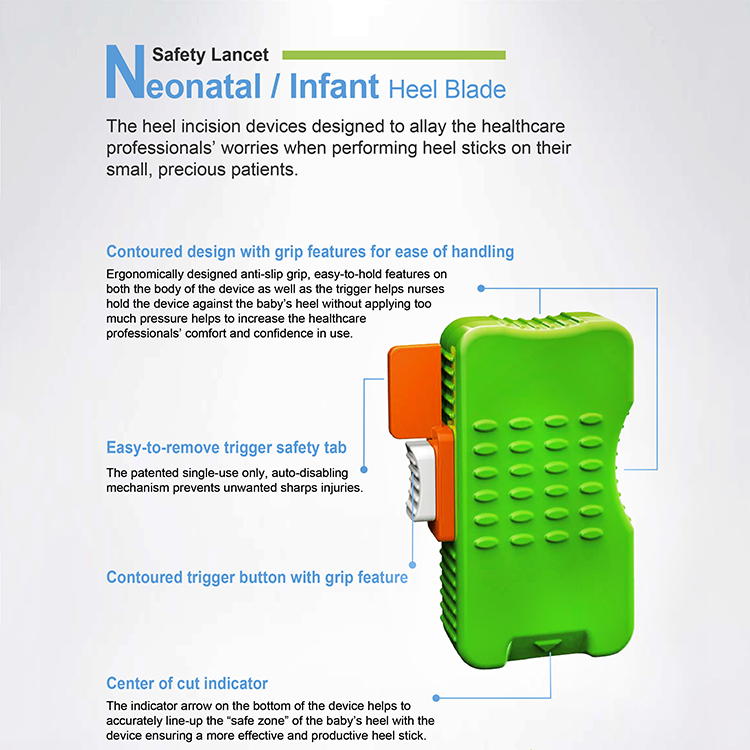Oct . 18, 2024 15:11 Back to list
Home Test Kits for Syphilis Detection from Trusted Suppliers
The Rise of At-Home Syphilis Testing Empowering Sexual Health
In recent years, the conversation surrounding sexual health has evolved significantly, with an increasing emphasis on accessibility and personal responsibility. One of the most notable advancements in this arena has been the introduction of at-home testing kits for sexually transmitted infections (STIs), including syphilis. This innovation not only promotes early detection but also fosters a more proactive approach to sexual health management.
Syphilis, caused by the bacterium Treponema pallidum, remains a public health concern worldwide. According to the World Health Organization, there are approximately 12 million new cases of syphilis every year. The infection can have severe consequences if left untreated, leading to complications such as cardiovascular issues, neurological problems, and even death. Therefore, timely diagnosis and treatment are crucial.
The Rise of At-Home Syphilis Testing Empowering Sexual Health
At-home testing kits for syphilis typically involve a straightforward process. Users are provided with a kit that includes all the necessary materials, such as a sample collection device and detailed instructions. After collecting the sample, which is often a simple blood drop or swab, individuals can send it to a designated laboratory for analysis. Results are usually available within a few days, delivering vital information directly to the user in a private and secure manner.
buy at home test for syphilis suppliers

The availability of at-home syphilis testing kits has been driven by a desire to remove barriers to testing and increase awareness about sexual health. Suppliers of these kits often prioritize user-friendly designs and clear instructions to ensure individuals feel comfortable conducting the test. Many organizations also include resources and support for those who test positive, emphasizing the importance of follow-up care and treatment.
Moreover, the rise of telemedicine has further enhanced the appeal of at-home STI testing. Many suppliers offer telehealth consultations alongside their testing services, allowing users to speak with healthcare professionals if they have questions or need guidance. This integration of technology not only makes it easier to access care but also helps normalize conversations around sexual health.
Another significant advantage of at-home testing is the empowerment it provides individuals. By taking charge of their health, people can reduce the stigma often associated with STIs and foster a more open dialogue about sexual health. Increased awareness and proactive behavior can lead to better public health outcomes, ultimately reducing the spread of syphilis and other STIs.
However, it's essential for individuals to be aware of the limitations of home testing. While these kits can be incredibly accurate, false negatives and false positives can occur. Therefore, it's vital for anyone testing positive to seek confirmatory testing and professional medical advice. Additionally, at-home tests should be used as part of a comprehensive sexual health strategy that includes regular screenings, communication with partners, and safe sex practices.
In conclusion, the advent of at-home syphilis testing kits represents a significant step forward in enhancing sexual health awareness and accessibility. By empowering individuals to take control of their health, these tools contribute to earlier diagnosis, reduced stigma, and improved public health outcomes. As we continue to prioritize sexual health education and resources, it is crucial to support the continued development and availability of these innovative testing options.
-
Dengue NS1 Rapid Diagnostic Test Kit
NewsMar.07,2025
-
Dengue NS1 Rapid Diagnostic Test Kit
NewsMar.07,2025
-
Dengue NS1 Rapid Diagnostic Test Kit
NewsMar.07,2025
-
Transferrin Rapid Test Cassette Tumor Marker TF Card
NewsMar.07,2025
-
Malaria Pf Pan Rapid Diagnostic Test Kit
NewsMar.07,2025
-
malaria pf / pan ag rapid test
NewsMar.07,2025

